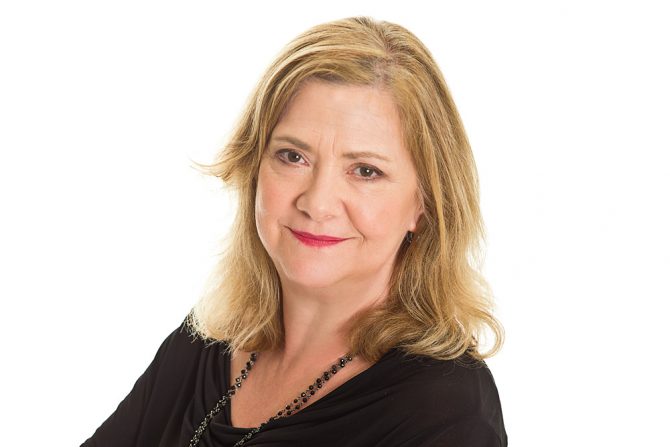I must admit I have not yet read Driving to Treblinka, but I am on the long list of library customers who have reserved it to read. I have, however, read all The Listener articles that were the precursors for this book.
The moderator for this session was Philip Matthews, former colleague of Diana Wichtel, but now writing for The Press. He opened the session with some lines from Leonard Cohen's First We Take Manhattan: "It's Father's Day and everybody's wounded."
Matthews suggested that Driving to Treblinka was a contribution to world history, but Wichtel demurred. She said that her father's side of her personal history had remained in silence with a lot unsaid for many years until she reached a certain age. She was spurred by one of her daughters and a niece who said she must find where her father was buried.
When Wichtel was asked to provide a memoir piece and recipe for a book called Mixed Blessings, she was reluctant, but eventually wrote a piece. This was another spur to start researching the life of her father who was a Polish Jew who survived the Holocaust by jumping from a train bound for the Nazi death camp, Treblinka. He was sheltered by partisans for the rest of the war. He ended up emigrating to Vancouver, Canada, where he met her Kiwi mother who was on her OE and ended up working at her father's business.
When Wichtel was 13, her family migrated to New Zealand. The children believed that their father was to follow them after tying up the loose ends of their lives in Vancouver. He never did and she discovered her parents' marriage had been disintegrating. As fate would have it, her mother met another man in Auckland who was also from Vancouver. He became Wichtel's stepfather. When Wichtel was 19, her actual father became ill, but she could not afford to return to Canada to see him.
But once Wichtel's own children had grown up, she was freed to follow the impetus to research her family's Jewish heritage with her father as the pivotal identity. Wichtel was approached by Mary Varnham of Awa Press and, over four years, with some welcome assistance from her Grimshaw Sargeson Fellowship, she researched and wrote Driving to Treblinka.
Wichtel realised that from the outset the book had to be a personal story. She reasoned that if she was exposing her family, she had to expose herself. She stresses to the audience that it is her story and her version of the family's history as honestly as she can portray it. She found that when she committed to writing the book, many of her own memories were recalled that she had imagined were lost to her.
When she interviewed Daniel Mendelsohn, author of The Lost: A Search for Six of Six Million, he told her that "you have to open the door to the past, knowing you won't shut it again." And while working on the book, she felt that she had entered "the stream of history" which unkindly spat her out once her book was published. Worried about her wider family's reception of her book, Wichtel had three months of anxiety after publication, but then realised to her delight that the family welcomed the book and were pleased she had written it.
Matthews joked that she had been a pioneer of what is now called "dark tourism" and she recounted some of the uncomfortable feelings she had experienced in Poland and in Israel. On a guided tour of Treblinka, she felt it was wrong that there was a cafe on the site. At Yad Vashem, Israel's official memorial to the victims of the Holocaust, she saw a guide, himself a survivor, posing for pictures with school children. Another guide was adamant this was not allowed, but Wichtel felt that if the man had survived the Holocaust, then he should be the judge of its appropriateness. She encountered contentious displays of pre-war Jewish life in Krakow and she felt that it airbrushed the anti-semitism that had been present in Poland before and during World War Two. She joked that many people referred to this display area as "Jewrassic Park".
She read an extract entitled "Snowing in Vancouver" about the last times she had spent with her father in 1964 before migrating to New Zealand at age 13.
Wichtel said the chapter called "Shouting at the Newspaper" was all too relevant with the many falsehoods being spread in the media about Jewish society, Jewish culture and the Holocaust and also the rise of the far-right in Europe and America.
She moved me to free the moths from my wallet. To paraphrase Jane Eyre: "Reader, I bought the book."
Follow our coverage of WORD Christchurch Festival 2018



Add a comment to: Diana Wichtel – Driving to Treblinka: WORD Christchurch Festival 2018